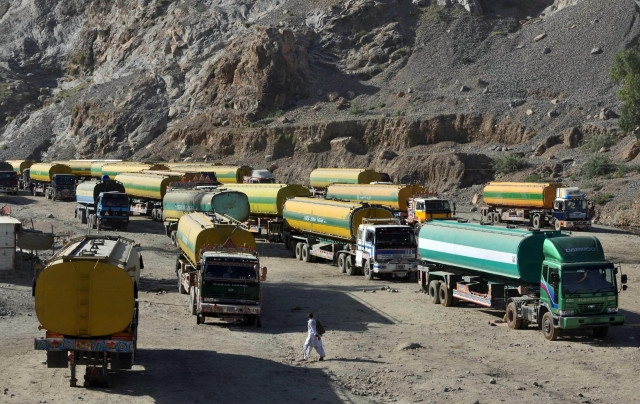World Bank survey: Pakistan drops to 72nd place in performance index
Logistics report assesses infrastructure, efficiency of countries.

The LPI survey gave a 2.83 score to Pakistan with 58.5% performance PHOTO: AFP
Despite its ideal geographical location, Pakistan lost a rank in the LPI – the previous one in 2012 had ranked the country 71st.
India, after losing two points, is ranked 48th for the year 2014, whereas China also dropped two points to 28th, compared to 26th in 2012.
LPI ranks countries by analysing the efficiency of customs, border management and clearance, quality of trade and transport infrastructure. The index also examines the quality of logistics services, the ability to track and trace consignments and the frequency at which shipments reach consignees according to the schedule.

The performance index compares logistics profiles of 160 countries, rating them on a scale of 1 (worst) to 5 (best). The ratings are based on 6,000 individual country assessments by nearly 1,000 international freight forwarders, who rate the eight foreign countries their company serves most frequently.
Germany is the leading country in the 2014 LPI survey. It scored 4.12, with 100% performance, defeating the previous number one Singapore.
Pakistan and India have been placed in the group of partial performer countries, which include nations with the logistics constraints most often seen in low- and middle-income economies.
The LPI survey gave a 2.83 score to Pakistan with 58.5% performance and a 3.08 score to India with 66.6% performance and have been placed in the 10 lower middle-income performers.
China scored 3.53 and has been placed in the top 10 upper middle-income performers.
This is the fourth report which the WB’s International Trade Department has produced, publishing it once every two years since 2007.
The first LPI survey in 2007 had ranked Pakistan at number 68, which dropped to 110 in 2010. The sudden drop was mainly due to nationwide floods, which critically damaged the infrastructural network in the country.
In 2012, Pakistan rebounded to 71st position, and then dropped to number 72 in 2014.
Pakistan’s logistics mostly rely on the road network. According to WB statistics, 96% of the national freight traffic is carried on road networks.
This is mainly due to the failure of Pakistan Railways’ freight operations, which have recently been resumed after a halt of more than two years.
Freight journeys via road normally take twice as long as they would in Europe, mainly due to poor and unreliable infrastructure. This constrains Pakistan’s ability to integrate into the global supply chains, which require just-in-time delivery.
According to the WB, the poor performance of the sector is estimated to cost the economy 4-6% of national GDP every year.
Experts said that in coming years, Pakistan’s infrastructural situation is likely to improve primarily due to the proposed Lahore-Karachi Motorway and the China-Pakistan Economic Corridor, which are on priority lists of the current government.
Published in The Express Tribune, February 10th, 2015.
Like Business on Facebook, follow @TribuneBiz on Twitter to stay informed and join in the conversation.


















COMMENTS
Comments are moderated and generally will be posted if they are on-topic and not abusive.
For more information, please see our Comments FAQ